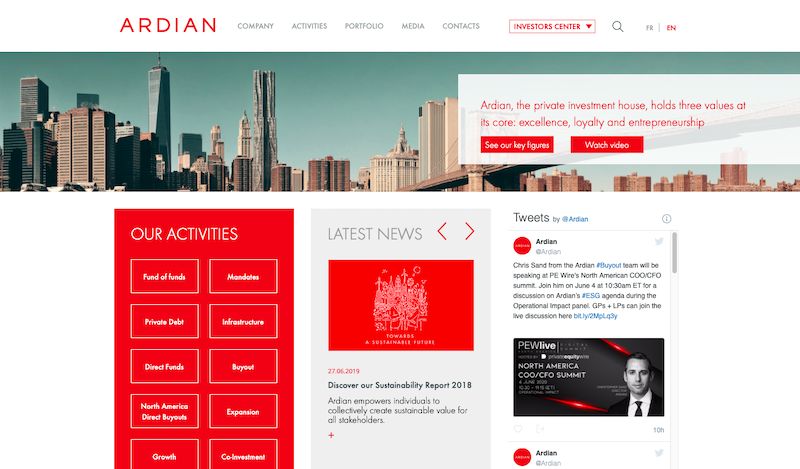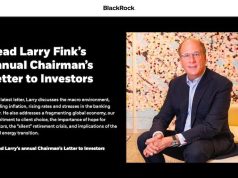Singapore MAS Lim Cheng Khai Speech: Private Capital with $11.7 Trillion IRR of 15.1% over 10 Years, Private Credit with $1.4 Trillion AUM with 4.2% Returns While US High-Yield Bonds Lost 14.7% & USD Emerging Debt Lost 20.5%
1st April 2023 | Singapore
Singapore central bank Monetary Authority of Singapore (MAS) Executive Director of Financial Markets Development Department Mr Lim Cheng Khai had given a speech on Private Credit – “The Next Key Driver of Growth in Private Markets”, at the Private Debt Investor’s APAC Forum on 29 March 2023 in Singapore. Key insights of the speech – Growth of Private Capital to $11.7 trillion AUM and Private Credit to $1.4 trillion AUM (Assets under Management). Singapore MAS Lim Cheng Khai: “Over the past 10 years to June 2022, private capital provided an IRR of 15.1%, and outperformed the MSCI World Index by 5.6%. (Last 9 months) More recently, private credit funds returned 4.2%, while US high-yield bonds lost 14.7% in the same period and USD-denominated emerging market debt lost 20.5%.” Read the full speech below.
” Private Capital with $11.7 Trillion IRR of 15.1% over 10 Years, Private Credit with $1.4 Trillion AUM with 4.2% Returns While US High-Yield Bonds Lost 14.7% & USD Emerging Debt Lost 20.5% “
Singapore MAS Lim Cheng Khai Speech: Private Credit – The Next Key Driver of Growth in Private Markets, at the Private Debt Investor’s APAC Forum on 29 March 2023 in Singapore

Distinguished guests, ladies and gentlemen,
Thank you for having me with you at this Private Debt Investor’s APAC Forum. We convene today at an unusual and uncertain time.
- The global economy muddled through 2022 with geopolitical tensions and inflationary pressures.
- Entering 2023, there is a cautious sense of optimism, that the worst of the Covid-19 pandemic is finally behind us, as the world’s second largest economy finally opened up after an extended lock-down.
- Three months on, a crisis of confidence in the western banking sectors poses a fresh threat to the global economy, and financial stability.
- Global central banks have taken swift actions to mitigate the contagion effect on the financial markets. Nevertheless, they face the challenge of navigating a narrow path at the intersection of price stability and financial stability.
What does this herald for the private debt market?
- The fact that it has grown more than 6-fold since the Global Financial Crisis offers a possible crystal ball glimpse to its growth opportunities in today’s environment.
- The demand for private credit by borrowers and investors can only increase, as the banking sector and public markets turn cautious.
It is timely that the private debt community is gathered here today, to discuss key trends and developments in this asset class. And I’ll start with three broad themes.
- First, the emerging role of private credit.
- Second, the prospect for private credit in Asia.
- And third, how MAS intends to support the growth of this asset class.
Private Credit as an Asset Class
Investments into private markets have become more mainstream, from US$2.9 trillion in 2011 to US$11.7 trillion on June 2022.
- Over the past 10 years to June 2022, private capital provided an IRR of 15.1%, and outperformed the MSCI World Index by 5.6%.
- More recently, private credit funds returned 4.2%, What is Private Credit in the first nine months of 2022
- while US high-yield bonds lost 14.7% in the same period
- and USD-denominated emerging market debt lost 20.5%
- the Bloomberg Global Aggregate index also fell 14.3% in the same period:
- This explains the growing popularity of private markets strategies among institutional investors looking for yields – including direct lending and special situations.
Private credit has also grown in tandem.
- Private credit AUM has grown by almost 3 times, from US$342 billion in December 2011 to US$1.4 trillion in June 2022.
- This is projected to grow to US$2.3 trillion by 2027: Alternative Assets.
- The number of private credit funds also doubled from 104 in 2010, to 222 in 2022.
- Correspondingly, the amount of aggregate capital raised per year increased from US$44.6 billion in 2010 to almost US$210 billion in end-2022.
Investors value private credit for:
- Diversification vis-à-vis other asset classes
- Co-investment opportunities with sponsors and general partners (GPs)
- And attractive yields with buffer against potential default loss, while benefitting from structural protections.
Borrowers find private credit attractive for:
- Access to financing, for the underserved segments that are not well covered by the banking sector or find it cost-inefficient to tap the public bond market
- And access to smart capital, and the opportunity to access wider business networks; and the availability of flexible, bespoke solutions and greater financing certainty.
Asia’s Growth Potential for Private Credit
The same growth story is taking place in Asia.
- The Asian private credit market has grown by almost 30 times in the last two decades, from only US$3.2 billion in 2000, to over US$90 billion in June 2022.
- This growth has accelerated in recent years. For example,
- Private credit investments allocated to Southeast Asia by global GPs as at June 2022 was US$65.4 billion, an increase of 52% from US$43.1 billion in 2020.
- Dry powder as of June 2022 was US$25.2 billion, an increase of 48% from US$17 billion in 2020.
- In India, the total private debt AUM managed by India-based GPs was US$13.4 billion as at June 2022, an increase of 51% from US$8.9 billion as at end 2020.
- In China, this same figure was US$51 billion, an increase of 31% from US$38.9 billion as at end 2020.
- The average Asian private credit fund size also increased from US$195 million in 2020 to US$386 million in 2022.
Notwithstanding this growth, private credit remains relatively nascent in this region.
- APAC-based private debt AUM was just 6%: Private Debt in APAC 2022 of the global total. This contrasts with Asia’s share of global AUM at 30%, Asia-Pacific Private Equity Report 2022.
Looking ahead, there remain tailwinds for this asset class in Asia.
- Asian SMEs, which represent 96% of all business enterprises in the region, already faced an estimated financing gap of US$5.2 trillion every year.
- Private debt financing, ranging from direct lending to special situations, and senior position in the capital structure offer higher level of assurance in volatile market periods.
- In the rising interest rate environment, the floating rate yield of private debt accords investors some downside protection.
- In Singapore, we are seeing more private credit managers. Many alternative managers, including Apollo, Blackstone, HPS and Oaktree, have established or expanded their private credit capabilities here to tap opportunities in the region.
At the same time, the Asian private debt market is more fragmented and challenging to navigate than the US and Europe.
- The legal framework in parts of emerging Asia poses additional risks or challenges to lenders and investors in private credit.
- Talent in the private credit space can be hard to come by:
- They need competencies in deal sourcing, structuring, financial modelling and execution
- And also appreciation of the diverse culture and language in the region.
Supporting the Growth of the Private Credit Ecosystem
MAS is committed to supporting private credit managers in their Asian expansion, and overcome these challenges.
- As a global Asia gateway, the Singapore financial sector can connect global markets and support Asia’s development.
- Singapore has a trusted legal system that provide greater predictability and enhance enforceability to safeguard the interest of general and limited partners.
- We are also committed to supporting general partners’ access to quality talent.
Let me elaborate.
Global Asia Gateway
First, Singapore is an important node for businesses to understand and intermediate capital flows in Asia.
- We have close to 1,200 asset managers in Singapore, including 425 private equity and venture capital managers.
- Of the US$4 trillion AUM in end-2021, 78% of the funds originated from outside Singapore, and 90% was reinvested outside the country.
- We have a growing pool of asset owners and allocators, including sovereign wealth funds and pension funds from Canada, South Korea and Australia that have set up offices in Singapore to tap regional opportunities.
- There is an increasing number of high net worth individuals and business owners who have set up family offices in Singapore.
- This ecosystem provides private credit managers with access to business networks, co-investment opportunities, and new investor segments.
- MAS will continue to partner private credit managers with strong track record that are keen to anchor their regional headquarters in Singapore, through our private market programme.
Trusted Legal System
Second, private credit managers can tap on Singapore’s trusted legal system to originate and anchor their private credit activities:
- General and limited partners can be confident of the protection of creditors’ rights with Singapore’s well-developed contract laws, credit and security laws, agency and trust laws, and insolvency laws. All parties can take comfort that potential disputes will be resolved expeditiously and through their preferred mode of dispute resolution.
- Singapore was top, along with London in 2021, as the most popular seat to conduct international arbitration. We are valued for our neutrality in the region, and the Singapore International Arbitration Centre is the most preferred arbitral institution in Asia-Pacific in 2021.
- With more Asia-based investors and general partners seeking opportunities in the Southeast Asian region, it makes sense for general partners, investors and borrowers, to use Singapore’s laws and arbitration system as the governing law and jurisdiction for loan origination and documentation.
- Lastly, managers can leverage the expertise of Singapore’s legal service providers and the deep ecosystem of fund directors and fund administrators, on the private credit fund investment and administrative and dispute resolution activities in Singapore.
Access to Talent
Third, a strong talent pipeline is critical to support managers’ growth in Singapore. MAS remains committed to supporting asset managers’ access to quality foreign talent, and efforts to develop their local bench strength.
- MAS has taken in the industry feedback in engaging the Ministry of Manpower on its Complementarity Assessment Framework (or COMPASS), which is the revised framework for employment passes. This will introduce more transparency and balanced considerations for GPs to bring in high quality foreign talent.
- A number of senior expatriate leaders in the asset management industry have already successfully obtained their new Overseas and Networks Expertise Pass, or ONE Pass. And we welcome these key decision makers to continue to spearhead the growth of their businesses and our asset management industry.
- MAS is working with several general partners to curate internship opportunities for students and mid-career hires who are keen to build a career in private credit.
- MAS also partners the Institute of Banking and Finance in offering manpower incentives such as Finance Associate Management Scheme (FAMS) and International Posting Programme (iPOST), which will help managers defray a portion of the salary expenses. These schemes are aimed at developing entry level, professional, specialist, and leadership talent for the financial sector.
In conclusion, the prospect for the private credit sector remains bright, despite the more immediate concerns in the financial markets.
The rest of the forum’s agenda will also go into more specific trends, including deeper dives into regional and sectoral developments in private credit, and implication of ESG on this asset class. These will be important insights for general and limited partners alike to navigate the uncertainty and maximise alpha.
As a system, MAS will continue to partner the industry and strengthen the ecosystem for the private credit market to thrive. Have a fruitful discussion ahead, and thank you for having me with you.
Sign Up / Register
Caproasia Users
- Manage $20 million to $3 billion of assets
- Invest $3 million to $300 million
- Advise institutions, billionaires, UHNWs & HNWs
Caproasia Platforms | 11,000 Investors & Advisors
- Caproasia.com
- Caproasia Access
- Caproasia Events
- The Financial Centre | Find Services
- Membership
- Family Office Circle
- Professional Investor Circle
- Investor Relations Network
Monthly Roundtable & Networking
Family Office Programs
The 2025 Investment Day
- March - Hong Kong
- March - Singapore
- July - Hong Kong
- July - Singapore
- Sept- Hong Kong
- Sept - Singapore
- Oct- Hong Kong
- Nov - Singapore
- Visit: The Investment Day | Register: Click here
Caproasia Summits
- The Institutional Investor Summit
- The Investment / Alternatives Summit
- The Private Wealth Summit
- The Family Office Summit
- The CEO & Entrepreneur Summit
- The Capital Markets Summit
- The ESG / Sustainable Investment Summit











































